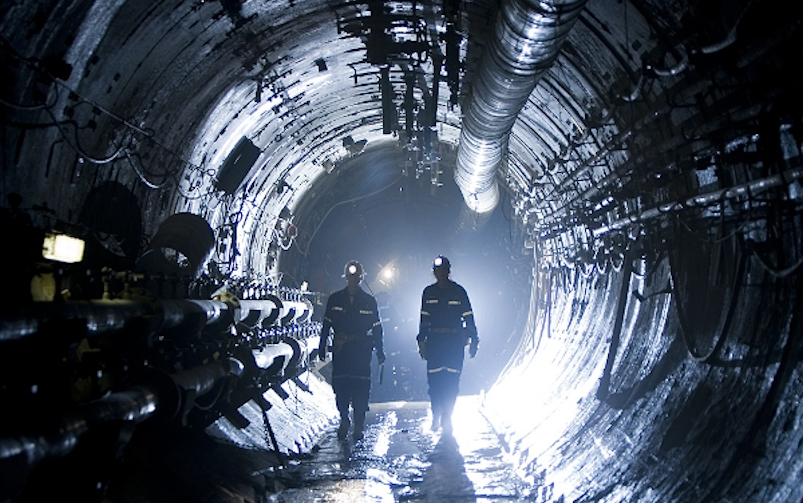The workforce on phase two of Teck's Quebrada Blanca project in Chile is expected to reach pre-suspension levels by the end of October. Courtesy of Teck Resources.
On July 23 Teck Resources released its second quarter results for 2020, posting significant losses for the quarter as the COVID-19 pandemic reduced demand for the company’s principal products.
Teck recorded a $149 million loss in the second quarter after posting a $231 million profit in the second quarter of 2019, with an EBITDA of $177 million. Commodity numbers also suffered compared to 2019, with steelmaking coal, copper, bitumen and zinc, both refined and in concentrate, having recorded drops in production for the quarter due to reduced workforce levels required by governments due to COVID-19.
The company also expensed $185 million in costs associated with COVID-19 during the quarter for operating sites costs – such as labour for furloughed employees, medical testing and supplies, additional transportation and accommodation for social distancing at its operations – and costs for demobilization and care and maintenance. Teck also expensed $75 million that would have been capitalized towards the construction of its Quebrada Blanca Phase 2 copper project in Chile, had work on the project not been suspended in March.
“We remain focused on protecting our people and communities, while continuing to operate responsibly and safely to support the economic recovery in the wake of the pandemic,” said Teck president and CEO Don Lindsay. “We took steps during the quarter to further strengthen our financial position, reduce costs and position Teck to significantly improve margins towards the end of 2020 and early 2021 as we complete major capital projects.”
The primary cause for the loss of revenues, according to Teck, was the significant drop in price and demand for each of the company’s products. Compared to the second quarter of 2019, the price of steelmaking coal dropped 37 per cent to US$114 per tonne, copper fell 12 per cent to US$2.43 per pound, zinc dropped 29 per cent to US$0.89 per pound and bitumen cratered 73 per cent to US$13.93 per barrel, down from US$51.40 a year ago.
Related: As investors emphasize sustainability and generating value in communities, mining companies are evolving with them
At its steelmaking coal operations, Teck felt the effects of the virus hitting steelmaking companies in and outside China. To save costs, Teck shutdown its Neptune Bulk Terminals in May until September, reducing its production and logistics chain capacity in the process. While workforce levels at the operations have since returned to normal, the company also plans to take shutdown days throughout the third quarter at certain plants and mines in order to manage costs through the terminal shutdown.
Profits from the copper division dropped as well, though not as significantly as steelmaking coal, falling to $103 million in the second quarter compared to $174 million a year ago. The company says that while operational issues in China have been resolved, the spread of COVID-19 throughout the rest of the world have affected shipments and production in areas such as Latin America and Central Africa.
As a result of COVID-19’s impact, Teck issued an updated guidance reducing production expectations for all its principal products for the second half of 2020. Production for steelmaking coal is now expected to range between 21 to 22 million tonnes, down from 23 to 25 million. Copper has been reduced to between 275 to 290 million tonnes, down from 285 to 300 million. Zinc production is estimated to come in between 563 to 593 million tonnes, down from 600 to 640 million. Only bitumen has kept in line with its original guidance for the year.
It isn’t all bad news, however. Teck says that it completed its Elkview plant expansion, increasing its annual capacity by two million tonnes up to nine million. It also resumed construction activities for Quebrada Blanca Phase 2 and is expecting to reach pre-suspension workforce levels by the end of October, as conditions allow.



